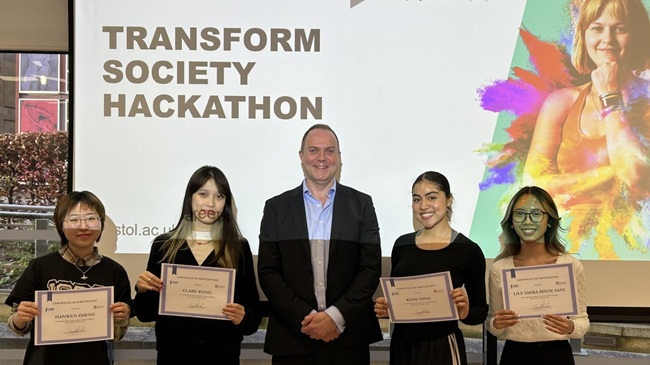Goal 2: Zero hunger
End hunger, achieve food security and improved nutrition and promote sustainable agriculture
Our research
Ultra-processed foods (UPF) currently account for around two-thirds of the calories consumed by UK adolescents, according to researchers from Bristol and partners at Cambridge University. Their study found that young people from deprived backgrounds had the highest rates of UPF consumption, along with those from white ethnicity groups and those from the north of England. UPFs have been linked to health challenges such as obesity, diabetes and cancer.
A University study uncovered the extent of food bank use by struggling families in the face of the national cost of living crisis. The research found that there are now more than 4,000 school-based food banks in England, supporting pupils as spiralling energy costs and food prices put family finances under strain. Researchers highlighted that low-income families in deprived areas were most vulnerable to food insecurity, with schools stepping in as a safety net to provide support that ranged from discrete food parcels up to full pantries offering free food, household products, laundry services and clothes.
Our students
The Students’ Union and the University worked together on a number of initiatives to ease the national cost of living crisis for students. In December 2023, the Union ran a Cost of Living Cooking Series focused on promoting cooking safety and food cost reduction for students, with Union officers sharing low-cost, healthy recipes via social media. Campus food outlets also offered subsidised meals, and the Union’s swap shop became a community larder, offering free canned and non-perishable food for students facing hardship.
January 2024 saw students from the School of Sociology, Politics and International Relations take part in their annual Hackathon, with this year’s event seeking solutions to food insecurity. Organised in partnership with social organisation Transform Society, the two-day event saw students coming up with ideas such as new volunteering spaces on campus, a time-banking community hub, ways to diversify food bank donations, engaging with local food companies, and the creation of a community kitchen.

Our communities
The Bristol Poverty Institute, Bristol Researchers Food Justice Network and the Cabot Institute partnered with local organisation Feeding Bristol to hold a Food Justice Workshop for the community in July 2024 as part of Food Justice Fortnight. The event brought together researchers and community groups to promote collaboration and meaningful change in the city around inequality, lived experience and food justice.
Researchers from Bristol launched an interactive map of Meals on Wheels providers in November 2024, offering information and helping people locate services that deliver to their area. Developed by a research team from the School for Policy Studies, the map is a free resource for older people and their families, vulnerable and disabled adults, and health and social care professionals.
Ourselves
In 2023, the University’s Source Catering team received a Gold Award from Bristol Eating Better, a local scheme that recognises food outlets that provide healthy, sustainable food options and work to reduce their own impact on the environment. Following this award, our cafés and food outlets across campus have continued to reduce sugar, salt and fat in foods, increase options for fruit, vegetables and fibre, reduce carbon and food waste, and support biodiversity, ethical practices and animal welfare. Additional steps were taken to reduce our ruminant meat procurement to just 0.9% of our overall food purchases in 2023/24, with the aim of further reductions in future years to positively impact sustainability and animal welfare goals.
Our Sustainable Food and Beverage Policy was updated in 2024 to reflect progress, address new priorities and refresh our goals. New objectives focused on further reducing food waste and packaging, and ensuring more produce are sourced responsibly and sustainably. The University’s Fairtrade Policy was also updated in 2024, renewing our commitment to supporting fair conditions and sustainable supply chains.
